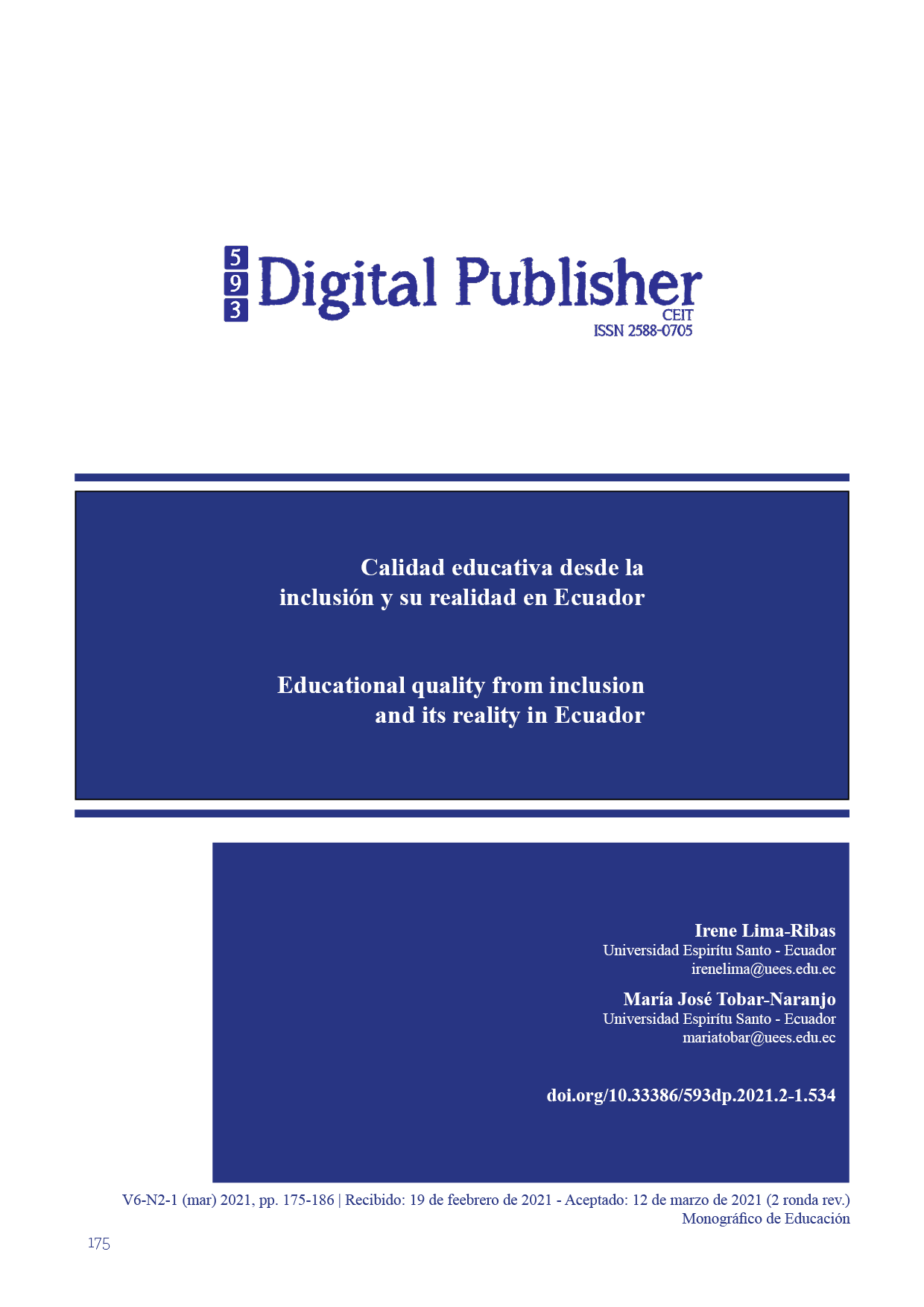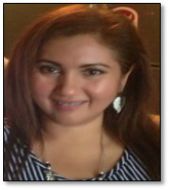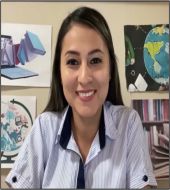Educational quality from inclusion and its reality in Ecuador
Main Article Content
Abstract
Inclusion, considered a principle of education in Ecuador, is an essential part of the teaching-learning process. The present investigative work seeks to show the reality that exists in our country with respect to this issue, to make changes in the development of strategic tools that promote the integral education of all children through an inclusive model. Based on human rights, inclusion in the education sector has been advocated in a fair and equitable way, promoting the principle of equal opportunities, adapting a transcendental pedagogy to their own needs. The curriculum must be flexible and modifiable and must enhance the development of abilities, skills and criteria of each student. How does educational quality affect inclusion from the Ecuadorian reality? What does the regulation propose regarding inclusive education? These are key questions that will be answered in this article; Therefore, a descriptive scientific research process with a mixed approach was carried out: qualitative from the collection of information and quantitative to formulate the analysis of said data that the statistics show, necessary, without a doubt, to strengthen the contributions of the actors immersed in this process, who will show the application of regulations, pedagogy and quality of inclusive education for all. Bearing this in mind, it is suggested that teachers use the tools and strategies necessary to address the different SEN. Thoughts and attitudes must be changed to achieve radical change.
Downloads
Article Details

This work is licensed under a Creative Commons Attribution-NonCommercial-ShareAlike 4.0 International License.
1. Derechos de autor
Las obras que se publican en 593 Digital Publisher CEIT están sujetas a los siguientes términos:
1.1. 593 Digital Publisher CEIT, conserva los derechos patrimoniales (copyright) de las obras publicadas, favorece y permite la reutilización de las mismas bajo la licencia Licencia Creative Commons 4.0 de Reconocimiento-NoComercial-CompartirIgual 4.0, por lo cual se pueden copiar, usar, difundir, transmitir y exponer públicamente, siempre que:
1.1.a. Se cite la autoría y fuente original de su publicación (revista, editorial, URL).
1.1.b. No se usen para fines comerciales u onerosos.
1.1.c. Se mencione la existencia y especificaciones de esta licencia de uso.
References
, Hallazgos. «Hallazgos21,.» Revista Científica Hallazgos21,, 2020.
Alonso, Pilar. «Calidad de la inclusìon iberoamericana.» 2015.
AsĐione, A. et al.: SoĐial inĐlusion and eduĐation through sport… Sport Science 11 (2018) 1: 52-56 52 SOCIAL INCLUSION AND EDUCATION THROUGH SPORT AND TECHNOLOGY Antonio Ascione, Davide Di Palma, Salvatore Napolitano Department of Sport Sciences and Wellness, Parthenope University, Naples, Italy
http://www.sposci.com/PDFS/BR1101/SVEE/04%20CL%2010%20AA.pdf
Buitrago, Sanchez. Educacion y pegagogia . Guajira : Siglo de hombres editores , 2019.
Clavijo. «Convención sobre los Derechos del Niño.» 2020.
Cruz, Rodolfo. «UNESCO.» 2019.
Eladio. «Nueva guía de integración en el aula.» 2016.
Espín. «Modelo Inclusivo.» 2019.
Espinoza. De 2010 – Suárez. 2019.
Gallego, Mirian. «Desarrollo de las habilidades (Ausubel).» 2019.
Granda. «Desarrollo de habilidades en el aula.» 2019.
inclusiva, Actitud de los docentes en la educacion. «Calvo, Pacheco y Ullauri.» Ediciones Azuay, 2018.
Iriondo, Cristina. «Inclusion una apuesta de amor.» Vamos a andar, 2016: 85.
López. «Integración y camino a la inclusión.» 2017.
—. La inclusión educativa. Madrid: Madrid, 2015.
Kashisaz, S., & Mobarak, E. (2018). The Effects of Private Education Institutes in Providing Modern Financial Knowledge in Developing Countries. Journal of Humanities Insights, 02(04), 172-178. doi:10.22034/JHI.2018.80887
Moriña, Cortés y Molina. «Diversidad en el aula de clases.» 2017.
Nadal. «Inteligencias múltiples.» De Howard Gardnern 1983. 2015.
Nadal, Howard Gardner &. «Las Inteligencias múltiples.» En Inteligencias múltiples, de Howard Gardner, 234. Madrid: Madrid, 2015.
Nathalia, Shuar Alvares. «Inclusión educativa en el rendimiento académico.» 2019.
Navarrete. «Educación inclusiva.» 2019.
Quintana, Yeni. «Calidad Educativa.» De Casassus 1999. 2018.
Rodrìguez, Soledad Rapport y Marìa Sol. «Calidad de la Educacion.» En Calidad Educativa y la tecnologia., 45, 94. Madrid: Dikinson, 2019.
Sáenz. «Métodos de la enseñanza para el desarrollo de habilidades.» 2019.
Solano. «Integración y homogeneidad en la educación.» 2015.
Sokolskaya, M.V., Olifer, O.O. (2016). An inclusive method of socialization of children with special educational needs in the context of school education in the Far Eastern region. Social and Human Sciences in the Far East, 2 (38), 142-148
http://revista.sangregorio.edu.ec/index.php/REVISTASANGREGORIO/article/view/1263/5-marina



